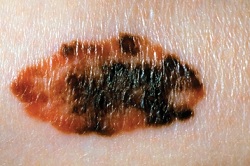Pavilion Publishing and Media Ltd
Blue Sky Offices Shoreham, 25 Cecil Pashley Way, Shoreham-by-Sea, West Sussex, BN43 5FF, UNITED KINGDOM
 The European Medicines Agency (EMA) has recommended authorising talimogene laherparepvec (Imlygic) for the treatment of adults with melanoma that cannot be removed by surgery and that has spread either to the surrounding area or to other areas of the body without affecting the bones, brain, lung or other internal organs
The European Medicines Agency (EMA) has recommended authorising talimogene laherparepvec (Imlygic) for the treatment of adults with melanoma that cannot be removed by surgery and that has spread either to the surrounding area or to other areas of the body without affecting the bones, brain, lung or other internal organs
Imlygic is a first-in-class advanced therapy medicinal product (ATMP) derived from a virus that has been genetically engineered to infect and kill cancer cells. The recommendation was made by the Committee for Medicinal Products for Human Use (CHMP) based on an assessment carried out by the Committee for Advanced Therapies (CAT), the Agency’s expert committee for ATMPs.
Melanoma is the most aggressive form of skin cancer and the leading cause of death from skin disease. In 2012, more than 100,000 Europeans were diagnosed with melanoma and it is estimated that about 22,200 have died from the disease.
If melanoma is localised and detected early, it can often be removed by surgery and patients have a very good chance of survival. However, patients with melanoma that has spread have a poor prognosis. For decades, standard chemotherapy was the only available treatment for these patients. In the past three years, the authorisation of targeted treatments, including immunotherapies, BRAF V600 inhibitors and MEK inhibitors have changed the therapeutic landscape and increasingly benefited patients. However, there is still an important need for new treatments with acceptable safety profiles to continue to improve the outlook for patients with this serious life-threatening disease.
Imlygic is derived from a virus (herpex simplex virus-1) that has been genetically engineered to infect and replicate within cancer cells and to produce the protein GM-CSF. It is thought to work in two ways: it enters the tumour cell and uses the cell’s energy stores to replicate, eventually overwhelming the cell and causing it to die.
By producing the protein GM-CSF it also stimulates the patient’s immune system to recognise and destroy tumour cells. Once an infected tumour cell dies, copies of the virus are released into the patient’s bloodstream to infect more tumour cells. Although Imlygic can enter healthy cells, it is not able to replicate in these healthy cells and so it does not kill them.
Imlygic is recommended to be injected directly into the melanoma lesions. The efficacy of Imlygic, compared with injecting GM-CSF under the skin, was assessed in one randomised controlled trial in adults with unresectable (cannot be removed by surgery) regionally or distantly metastatic melanoma.
The study enrolled 436 patients and the efficacy of 295 patients treated with Imlygic was compared with 141 patients treated with GM-CSF. Analysis of the subset of patients in the study whose disease had not spread to the lung or other internal organs showed a benefit in patients treated with Imlygic compared with patients treated with GM-CSF: 25% of those patients treated with Imlygic responded positively (durable response) compared with 1% of those patients treated with GM-CSF.
A durable response was defined as disappearance of the tumours or at least 50% reduction of tumours lasting at least six months until patients’ health declined or they required subsequent therapy. Exploratory analysis in these patients suggested improvements in survival in patients treated with Imlygic, but this is not yet fully clear. Imlygic has also not been compared with other recently approved medicines for melanoma, which have shown beneficial effects on survival.
Overall the CHMP and CAT considered that Imlygic is relatively well-tolerated in patients with cancer and concluded that the medicine’s benefits outweigh its risks. A follow-up plan to monitor the efficacy and safety of Imlygic was agreed by the CHMP and the CAT.


